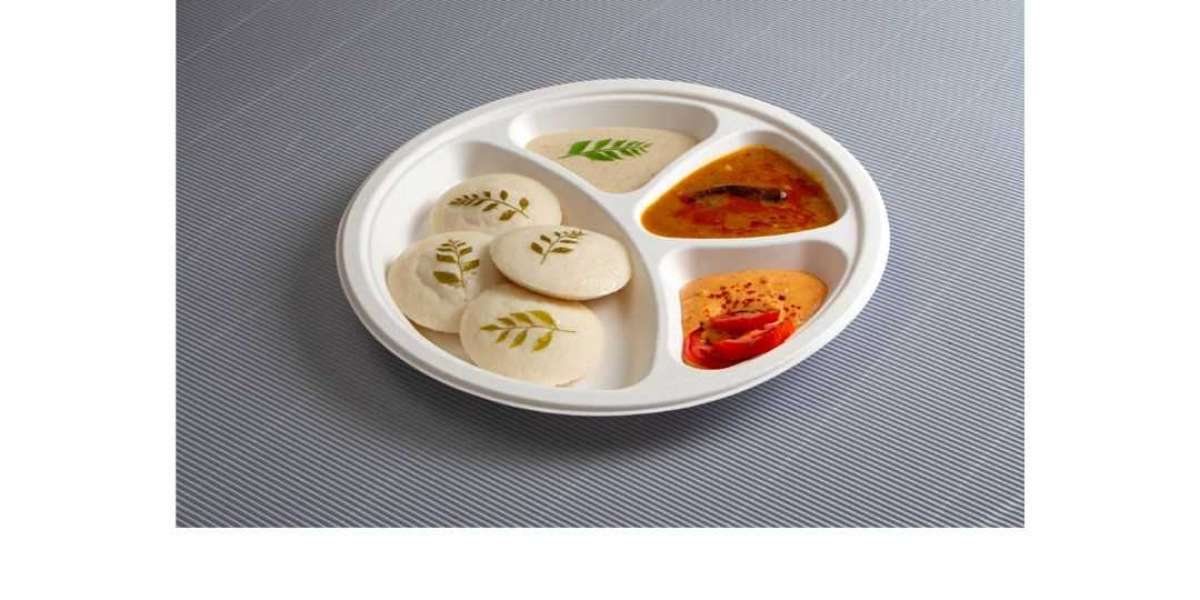As the world becomes more environmentally conscious, businesses across various industries are re-evaluating their practices to align with sustainable values. The restaurant industry, in particular, has a significant opportunity to make a positive impact by switching to eco-friendly tableware. This change not only benefits the environment but also offers numerous advantages for restaurants themselves. In this blog, we will explore the compelling reasons why your restaurant should make the switch to eco-friendly tableware.
Environmental Impact
Reduction in Plastic Waste
One of the most immediate benefits of switching to eco-friendly tableware is the reduction in plastic waste. Traditional plastic utensils, plates, and cups contribute significantly to environmental pollution. By opting for biodegradable or compostable alternatives, your restaurant can help mitigate the harmful effects of plastic waste on oceans, wildlife, and ecosystems.
Lower Carbon Footprint
Eco-friendly tableware made from materials such as bamboo, bagasse, and cornstarch typically require less energy to produce compared to plastic. This results in a lower carbon footprint throughout their lifecycle. Choosing these materials supports a more sustainable production process, contributing to the fight against climate change.
Cost Efficiency
Long-Term Savings
While the initial cost of eco-friendly tableware might be higher than conventional options, the long-term savings can be substantial. Durable, reusable options reduce the need for frequent replacements, lowering overall costs. Additionally, as the demand for sustainable products increases, the prices are expected to become more competitive.
Reduced Waste Disposal Costs
Switching to compostable tableware can lead to lower waste disposal costs. Composting organic waste is often cheaper than disposing of non-biodegradable plastics. Moreover, many municipalities offer composting programs that can further reduce expenses associated with waste management.
Enhanced Customer Experience
Meeting Customer Expectations
Today's consumers are more environmentally conscious than ever before. Many actively seek out businesses that align with their values. By offering eco-friendly tableware, your restaurant can attract and retain customers who prioritize sustainability. This alignment with customer values can enhance their dining experience and foster loyalty.
Aesthetic Appeal
Eco-friendly tableware often boasts a natural, elegant aesthetic that can enhance the overall ambiance of your restaurant. Materials like bamboo and palm leaf not only look appealing but also provide a unique dining experience. This can differentiate your restaurant from competitors and leave a lasting impression on your guests.
Brand Image and Marketing
Positive Brand Image
Adopting eco-friendly practices can significantly boost your restaurant's brand image. Demonstrating a commitment to sustainability shows that your business cares about the environment and is willing to take action. This positive image can attract media attention, leading to free publicity and an enhanced reputation.
Marketing Opportunities
Promoting your use of eco-friendly tableware can be a powerful marketing tool. Highlighting your sustainable practices on social media, your website, and in your restaurant can attract environmentally conscious customers. You can also participate in green certifications and awards, further establishing your restaurant as a leader in sustainability.
Operational Benefits
Simplified Waste Management
Eco-friendly tableware simplifies waste management processes. Compostable products can be disposed of with organic waste, reducing the need for complex sorting and minimizing contamination of recyclable materials. This can streamline operations and reduce labor costs associated with waste management.
Health and Safety
Many eco-friendly tableware options are free from harmful chemicals found in traditional plastics, such as BPA and phthalates. This ensures that your customers are not exposed to potentially hazardous substances, promoting a healthier dining environment.
Conclusion
Switching to eco-friendly tableware offers a multitude of benefits for your restaurant, from reducing environmental impact and cutting costs to enhancing customer experience and improving brand image. By embracing sustainable practices, your restaurant can play a pivotal role in the global movement towards a greener future. Not only will this decision resonate with eco-conscious consumers, but it will also position your business as a responsible and forward-thinking leader in the industry.








